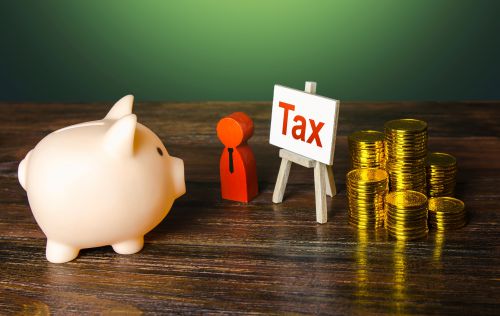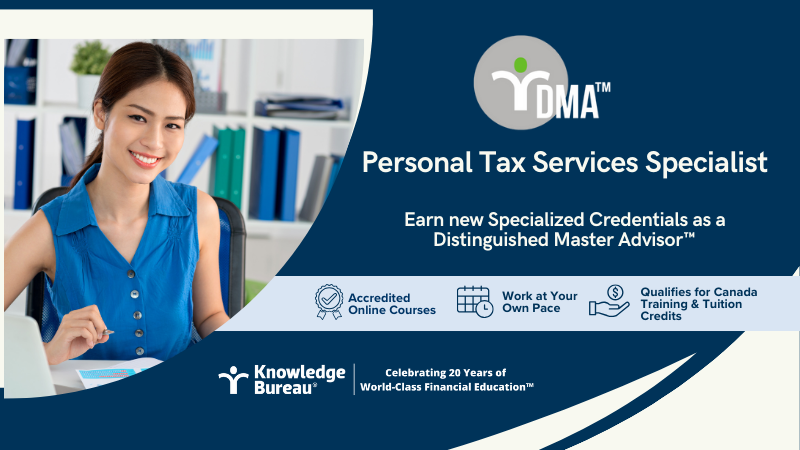Tax Tip 2024: Who Must File a T1 Return?

Evelyn Jacks
Tax filing isn’t required by everyone, but, for very good reasons, every adult in Canada should file a T1 tax return. Most people will file a tax return to get their tax refunds – an average of $2,260 last tax year. Even those with no income should do it to tap into refundable tax credits and reserve important investment room in various tax-preferred accounts. Some minors with actively earned income should do it too to preserve RRSP room. But who absolutely must file? You may be surprised, especially if you are behind a year or two. Check it out:
Backgrounder. If you owe money to CRA you must file a tax return. Consequences are late filing penalties, gross negligence penalties and in some cases tax evasion penalties (the latter being a criminal offence). Interest is charged on outstanding amounts, currently at 10% compounding daily.
Most people don’t realize that Canada doesn’t require the filing of a personal tax return based on citizenship. Rather, Canadian residents must report worldwide income in Canadian funds. That’s a surprise to many newcomers to Canada, a growing number of which may be in your community. It's important to let them know about this and the requirement get a Social Insurance Number (SIN) for identification (as well as to explain CRA’s privacy policies and how to steer clear of scam artists).
Types of Residents. Determining residency therefore really important. Was the taxpayer a full time, part time or deemed resident? What province will the taxpayer pay taxes in? Here’s what you need to know:
- Provincial taxes payable – and provincial tax credits - are based on where the taxpayer resides as of December 31 of the tax year.
- Part-time and non-residents have unique filing obligations in Canada. Part time residents will file based on their residency from January 1 to date of departure in the case of
 emigrants; immigrants will file based on the date of entry to the end of the year.
emigrants; immigrants will file based on the date of entry to the end of the year.
- Deemed residents also have unique filing obligations. These are:
- People who lived outside of Canada during the tax year, and therefore did not have significant residential ties in Canada. This may include the following taxpayers and their families: a government employee, a member of the Canadian Forces including their overseas school staff, or those taxpayers who are working under a Global Affairs Canada assistance program. These people are considered residents of Canada for tax purposes.
- People who stayed in Canada for 183 days or more in the calendar year and who not have significant residential ties with Canada. If these people are not considered a resident of another country under the terms of a tax treaty between Canada and that country, they are deemed residents of Canada. This can include temporary workers, students and vacationers in Canada.
For deemed residents, a federal tax return is required in these cases to report worldwide income to the federal government with all the federal government deductions and non-refundable credits available; however, there are no provincial tax credits available; a federal surcharge is paid instead. With regard to refundable tax credits, only the GST/HST Credit is available to deemed residents.
Tax Trap Checklist: A tax return must be filed in the following cases – do file immediately to catch up:
- There is a Balance Due: The taxpayer has taxable income and must pay federal or provincial income tax in the current tax year or any of the preceding three tax years. This is the normal statute of limitations for CRA to request additional information for audit purposes. However, if CRA expects fraud, they can go back a full ten-year period.
- Disposers of Capital Property. There has been a disposition of any taxable Canadian property in the year, including offshore property.
- Owners of Principal Residence. The disposition of a principal residence, which requires the filing of Form T2091 Designation of a Property as a Principal Residence and comes with a separate "failure to file" penalty of up to $8000. These properties could also be subject to new Anti-Flipping Rules.
- OAS or EI Recipients. File if there is a required repayment of social benefits of OAS (Old Age Security), EI (Employment Insurance) benefits or any pandemic support benefits received in error.
- RRSP Holders. File a return if there is a repayment of the RRSP HBP (Home Buyer Plan) or LLP (Lifelong Learning Plan)
- Self-Employed Taxpayers. File to report net income and make self-contributions to the CPP or opting not to contribute anymore.
- Offshore Investors. If the taxpayer is holding offshore properties with a cost of $100,000 or more file a T1 and also file Form T1135 Foreign Income Verification.
- . File a UHT-2900 return to report and pay the Underused Housing Tax. Non-residents with rental income in Canada and who are not making withholding taxes at source of payment to file a Section 216 or 217 return.
Bottom Line. If you are a resident or deemed resident of Canada, file a tax return. It will save you money if you owe and bring you new money if you qualify for refunds, or refundable tax credits. Remember, some non-residents will have to file, too. It's worth noting that for UHT purposes, citizenship is a factor. Canadian citizens, no matter where they live are generally excluded from paying the tax, even if they own unused residential property in Canada. Non-residents who own residential property, however, must check it out to see if they owe the tax or most file to claim an exemption.
For these reasons, even the simplest of tax returns can benefit from the tax planning advice a designated Tax Services Specialist who has graduated from Knowledge Bureau can provide. . Check this outstanding program out. Here’s what our students say about it:
“I am working on my second degree with the Knowledge Bureau, and I strongly recommend their courses for anyone in the financial services field. They have without a doubt, the most practical and effective approach to helping advisors serve their clients.“ - Chris Valentine, ON